CATEGORIES:
BiologyChemistryConstructionCultureEcologyEconomyElectronicsFinanceGeographyHistoryInformaticsLawMathematicsMechanicsMedicineOtherPedagogyPhilosophyPhysicsPolicyPsychologySociologySportTourism
Used to (finished actions)
11. Get/be used to (changing situations)
Will do (future)
Going to (planned future)
Had done (past perfect)
15. a/some (articles, quantities)
16. Some/any (quantities)
17. Much/many/a lot (quantities)
18. Can/could (ability/permission)
19. Must/have to (obligation/prohibition)
20. Big/small/beautiful (adjectives)
21. Big/bigger/biggest (comparatives and superlatives)
Should (advice, recommendations)
23. I/me/my/mine (pronouns, possessive adjectives)
24. What/when/where (questions 1)
25. How much/many (questions 2)
26. On/it/at (time prepositions)
27. What would you do? (conditionals)











 Unit 1
Unit 1
I am (I’m)
I’m John
I’m American
I’m thirty-five
I’m a salesman
I’m interested in politics
I’m single
Thisis John. He’s American, he’s thirty-five, he’s a
salesman.
Positive
I am (I’m)
You are (you’re)
He is (he’s)
She is (she’s)
We are (we’re)
They are (they’re)
Negative
I am not (I’m not)
You are not (you’re not)
He is not (he’s not)
She is not (she’s not)
We are not (we’re not)
They are not (they’re
Not)

 You are àare you?
You are àare you?
To make questions, change the verb and the subject:
Positive Question
He is French Is he French?
You are late Are you late?
They are nurses Are they nurses?
Am/is/are are the present forms of the verb to be. We call
this verb a ‘state verb’.
State
• Age: I am thirty
• Nationality: I am French
• Status: I am single/married/divorced
• Profession: I am a teacher/secretary/manager
• Physical state: I am tired/hungry/cold
• Emotional state: I am happy/sad/excited
Tip
Make a mind map about your life, using ‘I am’.
We’re hungry !

 Unit 2
Unit 2
I am doing
He is reading a book They are running The sun is shining
The verb ‘to be’ can be used as an auxiliary verb before
other verbs. The verb that follows always has the ending ‘-
ing’.
‘to be’ represents a present state, so when it’s followed by
a verb (-ing) it refers toa present activity.
• I’m a teacher, but I’m not teaching now, I’m
preparing a lesson
• Susan is wearing a pretty dress today
• Take an umbrella, it’s raining


 Spelling
Spelling
Note the following spelling changes:
write à writing run à running
come à coming swim à swimming
dance à dancing sit à sitting
lie à lying
Negative
Place ‘not’ after the auxiliary:
I’m not sleeping
They’re not working -or - they aren’t working
She’s not reading -or - she isn’t reading
Questions
Change the order of words:
• Are you sleeping?
• Is he playing?












 Unit 3
Unit 3
I like/do/go
The Present Simple
Positive
I like
You like
He likes
She likes
We like
They like
Negative
I don’t like
You don’t like
He doesn’t like
She doesn’t like
We don’t like
They don’t like
The present simple is used for things in general, and things
that happen sometimes or always:
• The sun rises in the east
• I work from nine till five
• I like chocolate
• I go to the cinema on Saturdays
To indicate frequency, we use these adverbs:
always usually often sometimes
never
100%
0%







 • I always go shopping on Fridays
• I always go shopping on Fridays
• I usually have coffee with my breakfast, but
sometimes I have tea
• I never watch American movies
• I often buy a newspaper on my way to work
Present simple spelling
Note the following spelling changes:
I watch à she watches
I kiss à he kisses
I wash à she washes
I judges à he judges
I study à she studies
I try à he tries
I do à she does
I go à he goes


















































 Present simple questions
Present simple questions
We use the verb ‘do’ as an auxiliary when we ask
questions:
• Do you read a lot?
• Do they live here?
• Does she like her job?
• Do you always arrive early?
• What do you usually do in your free time?

















































 Unit 4
Unit 4
have/have got
She has blue eyes and black hair
=
She’s got blue eyes and black hair
(has got)
For possession, have and have got arethe same
I’ve got a cold and a high
temperature
Date: 2015-12-11; view: 1363
| <== previous page | | | next page ==> |
| Www.anglais-facile.com | | | Have got in questions |